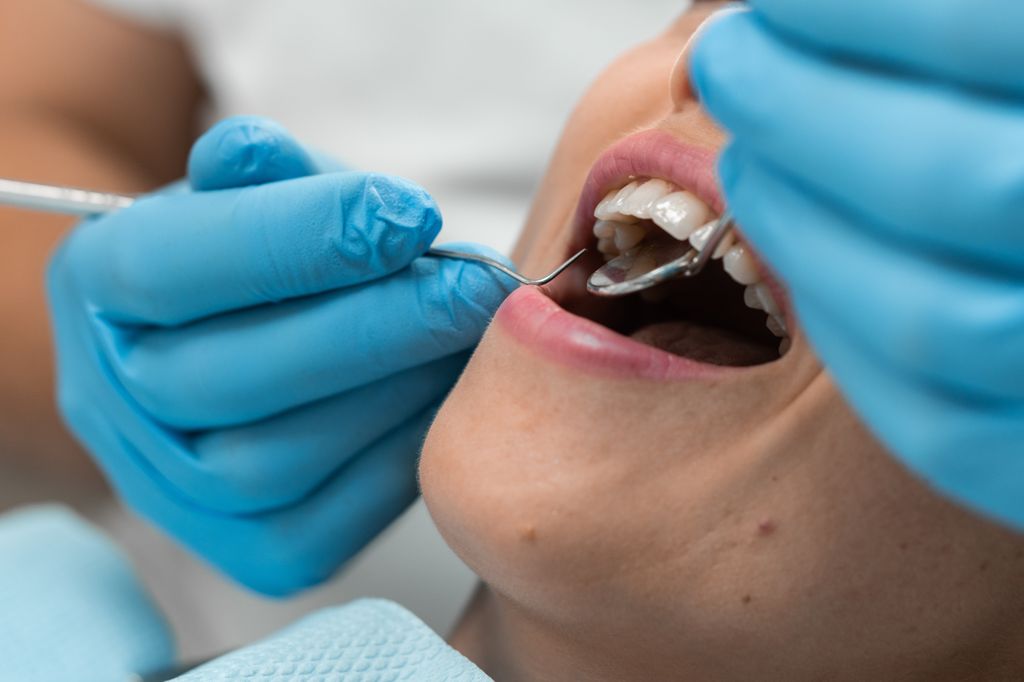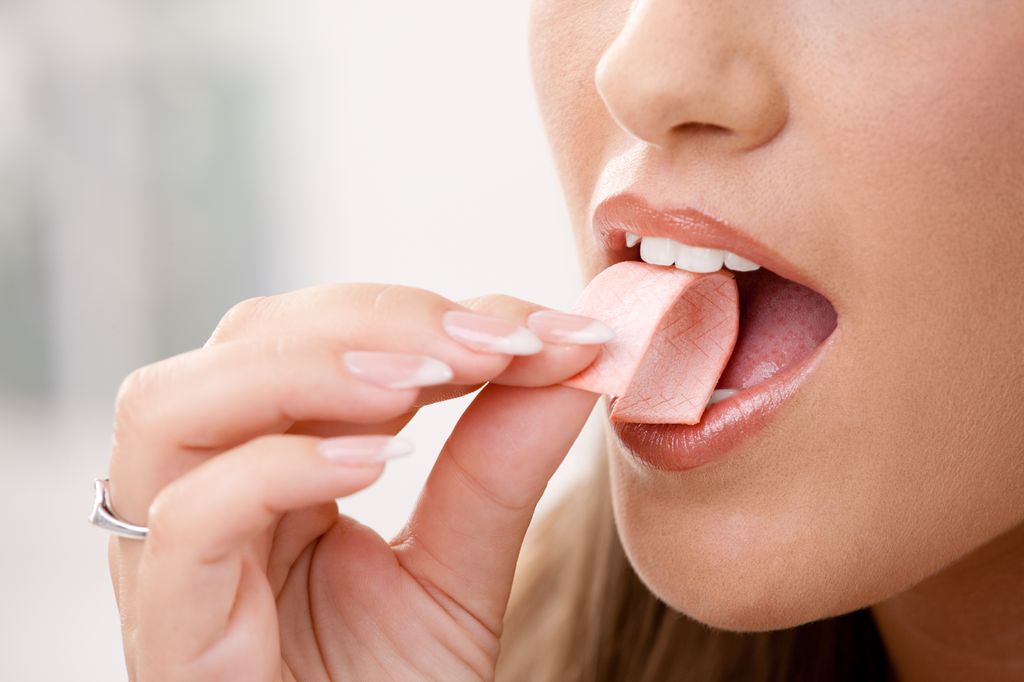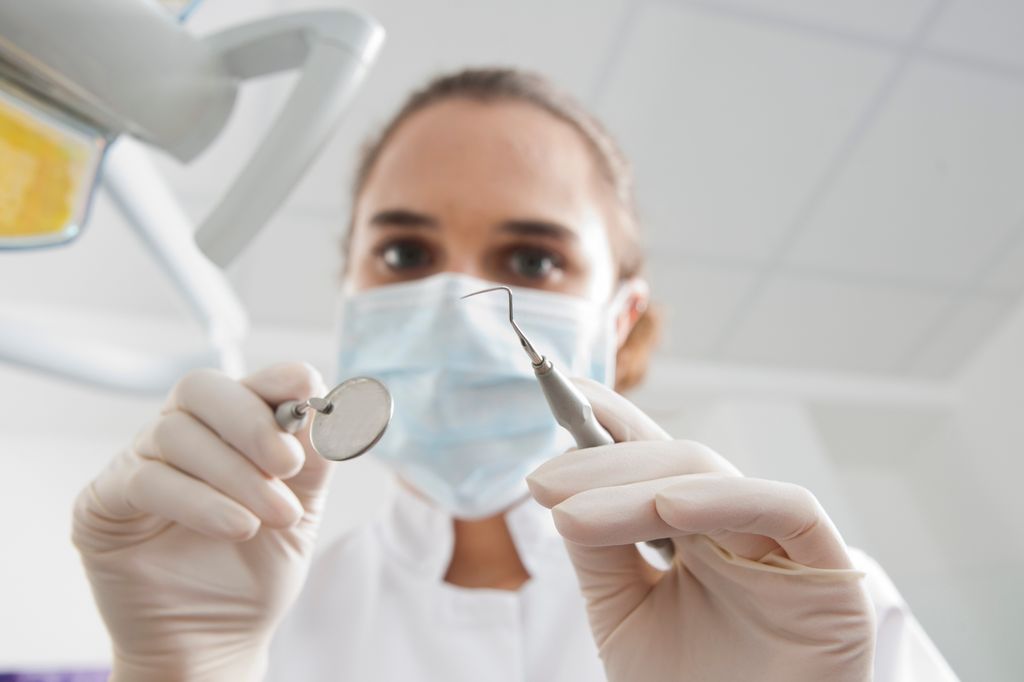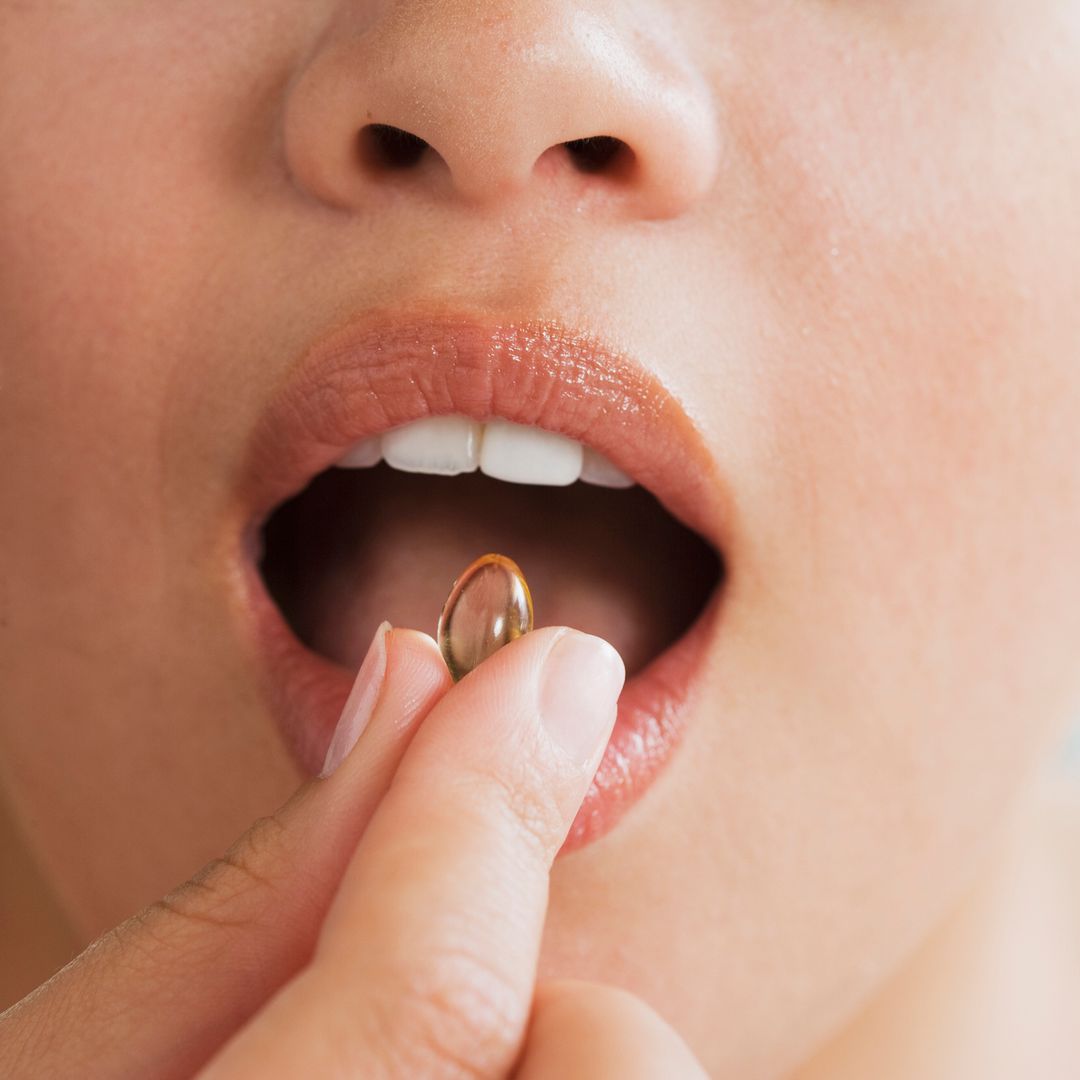You might expect a candid chat with a friend to help you realise you're perimenopausal, or perhaps an appointment with your doctor. But many women are receiving their perimenopause somewhere entirely different, as 48-year-old Becky explains.
"'Are you in perimenopause?' isn't question you expect from your dentist," Becky says, addin it was one of the first things her dentist asked during a recent routine checkup.
"I'd been experiencing some bleeding from my gums after brushing, which was unusual for me especially as I am so rigid with my brushing and flossing routine," Becky explains. "I couldn't work out why it was happening. I wasn't doing anything different and my diet was exactly the same."
What Becky didn't know was that she was in the early stages of perimenopause, a time when her estrogen levels would be peaking and dipping, which according to the National Institute of Health, can lead to oral issues such as bleeding, gum disease and also a dry mouth. "It was when I mentioned that my mouth constantly felt dry that my dentist suspected that I was in perimenopause."
Dry mouth, or xerostomia as it's known in the medical profession, also increases the risk of cavities and bad breath as saliva plays such a crucial role in neutralizing acids in your mouth and washing away bacteria
"My dentist suggested that I chew sugar-free gum to help encourage saliva production in my mouth, and of course make sure I stay hydrated with plenty of water."
Burning mouth syndrome
Another condition linked to hormonal imbalances during perimenopause is burning mouth syndrome, which Amelie, 52, discovered she had during a routine dentist visit.
"I'd been experiencing a horrible burning sensation in my mouth, that sometimes spread to my tongue and lips. I couldn't understand why it was happening as the areas didn't look red at all, they just felt tingly and odd," Amelie explains.
ADVICE: Menopause made me forget words and names – here's what helped
Amelie was lucky that her dentist understood that burning mouth syndrome can be a frustrating symptom of perimenopause and according to Alloy, the online menopause-focused women's healthcare service, between 15 to 33% of menopausal women complain of experiencing it.
According to The Menopause Charity, horomone replacement therapy may help alleviate burning mouth syndrome, and it is a solution that helped Amelie.
"I started on a combination of estrogen patches and progesterone as I was experiencing hot flashes and anxiety," Amelie explains. "I didn't expect it to help with my burning mouth, but after a few weeks, I noticed the tingling stopped," Amelie explains. "My dentist also suggested using a toothpaste designed for sensitive teeth to help neutralize any acids which I'm sure helped too."
To help manage these oral symptoms, dentists agree that staying on top of dental visits is even more important during perimenopause and keeping hydrated by drinking plenty of water will help symptoms such as dry mouth too.













